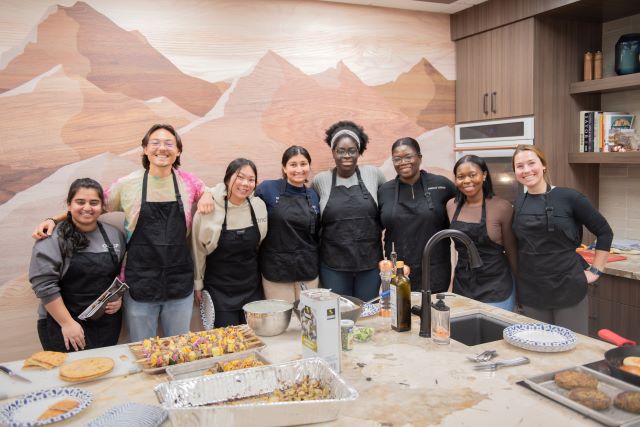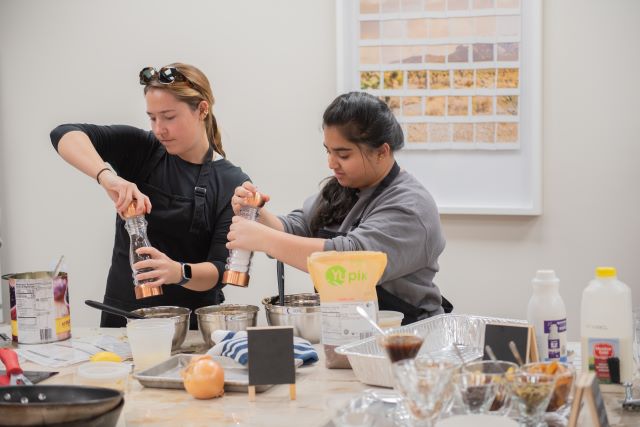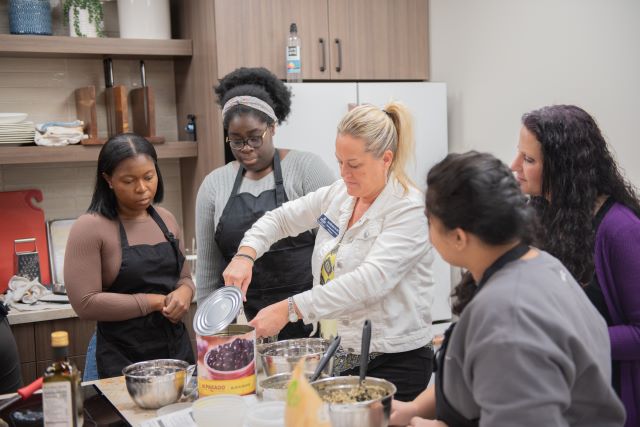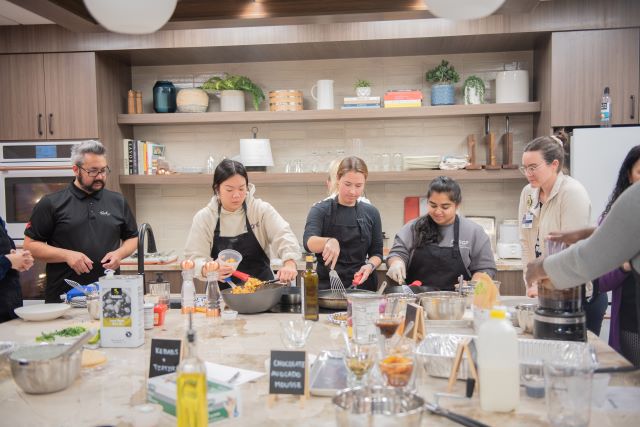Future Physicians Get a Taste for Nutrition Through Culinary Medicine Pilot Program

Touro College of Osteopathic Medicine Montana students are stepping into the kitchen to bolster their knowledge about nutrition and health. The Farm to Clinician Culinary Medicine Program is a three-session course that brings together second-year medical students, dietetic students and professionals, and culinary experts to explore the “food as medicine” principles in healthcare.
The program is a collaboration between Touro COM Montana, Montana State University, Thomas Cuisine, and Benefis Health System. The classes are held in the Husted Teaching Kitchen at Benefis Sletten Cancer Institute, allowing the students to prepare dishes that relate to highlighted health topics, including food and culinary literacy, gut health, and adverse food reactions.
The students participate in a classroom discussion of each topic, led by Director of Dietetic Internship and Operations at Montana State University Anna Diffenderfer, before breaking into teams to prepare at least four different recipes per session. The group tastes and discusses each dish together at the end of each lesson.
Helan Baulose, a medical student, says the program covers topics they don’t necessarily learn in class, and it provides perspective about patients managing different health conditions that can be heavily impacted by their diet.

“It kind of gives you a more humane touch through food,” she says. “Which I’m sure we can all use as future doctors.”
Touro COM Montana Assistant Clinical Dean Dr. Stephanie Zeszutek holds discussions with her students throughout the program, highlighting the connection of culinary medicine to the osteopathic principle of treating the whole person, which includes addressing nutrition as a key factor in health and wellness.
“Just showing your patient that you know and care about this topic will help build trust and a relationship,” she says.

The program also promotes collaboration between medical providers and registered dietitians in both inpatient and outpatient settings. The students learn the importance of supervision by a dietitian when a patient tries a new way of eating to prevent nutritional deficiencies and promote a high quality of life.
This collaboration took two years to move from the planning stage to the kitchen, and the goal is to formally integrate the course into the Touro COM Montana curriculum.

“We want providers to talk about nutrition with their patients and provide introductory information,” says Brittney Turville, a registered dietitian and director of Food Services for Thomas Cuisine. “Starting the discussion early in the disease process allows motivated patients to make a stronger impact on their health.”